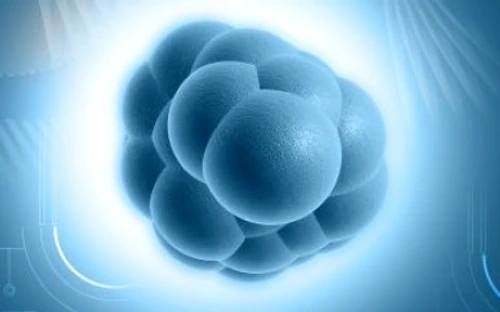
Unfortunately, polycystic ovary syndrome can be one of the causes of female infertility. To learn more about this condition, how it affects women, how it can be recognized and, above all, how it affects infertility, I spoke with Dr. Andreas Vythoulkas, obstetrics-gynecology specialist, with superspecialization in infertility.
What causes this syndrome?

Polycystic ovary syndrome occurs as a result of a hormonal imbalance and is more common in teenagers and young women.
An important symptom of this condition is the irregularity or sometimes even the absence of the menstrual cycle, the cause being the hormones that stop the natural process of ovulation, Dr. Vythoulkas revealed to us.
Other symptoms of the condition could be weight gain with a tendency to obesity, excessive hair – on the face, chest, abdomen, fingers or back, acne, pain in the abdominal area, increased blood pressure, the presence of a high cholesterol level, the appearance of a possible diabetes, anxiety, depression, infertility, miscarriages.
Find out what the prevention of oocyte aging entails HERE
Insulin, body weight and infertility

Insulin – created by the pancreas, its role is to control the level of sugar in the body. And when the sugar level is high, this hormone acts on fat and muscles, storing glucose. It also acts on the ovaries, producing more testosterone.
The high level of insulin and testosterone (male hormone) affects the activity of the ovaries, namely in the development of follicles, which do not develop fully, this being the main reason for low ovulation.
Another causative factor is luteinizing hormone (LH) – the hormone secreted by the pituitary gland stimulates it to produce, together with insulin, more testosterone.
We must also take into account genetic factors – although it has not been scientifically proven, many of the women diagnosed with PCOS have family members (mother, sister) with the same problem.
Unfortunately, the high weight – the large number of extra kilograms determines even greater resistance to insulin.
What is the danger of hormonal imbalance?
The risks of untreated polycystic ovary syndrome are significant, continued Dr. Vythoulkas. This hormonal imbalance negatively influences the woman’s fertility, leading to the impossibility of getting pregnant naturally.
Also, uterine cancer, diabetes, obesity, cardiovascular problems, myocardial infarction, hypertension are some of the most important conditions at risk after untreated PCOS.
If in the last calendar year, a woman has less than 8 periods (except for women who are pregnant or breastfeeding), it is necessary to see a doctor. Diagnosis includes a history of the disease, physical examination, blood tests (to determine the level of male hormones, cholesterol and triglycerides, glucose tolerance, prolactin level), but also a transvaginal ultrasound.
Treatment includes regulating ovulation and menstrual cycles through regular hormone therapy, reducing the concentration of male hormones, using medication for skin problems.
Essential in the treatment of polycystic ovary syndrome is lifestyle change and, necessarily, weight loss.

Dr Vythoulkas Andreas, Bucharest
Obstetrics-gynecology specialist
www.vythoulkas.ro
no. appointments: 021.9607






































